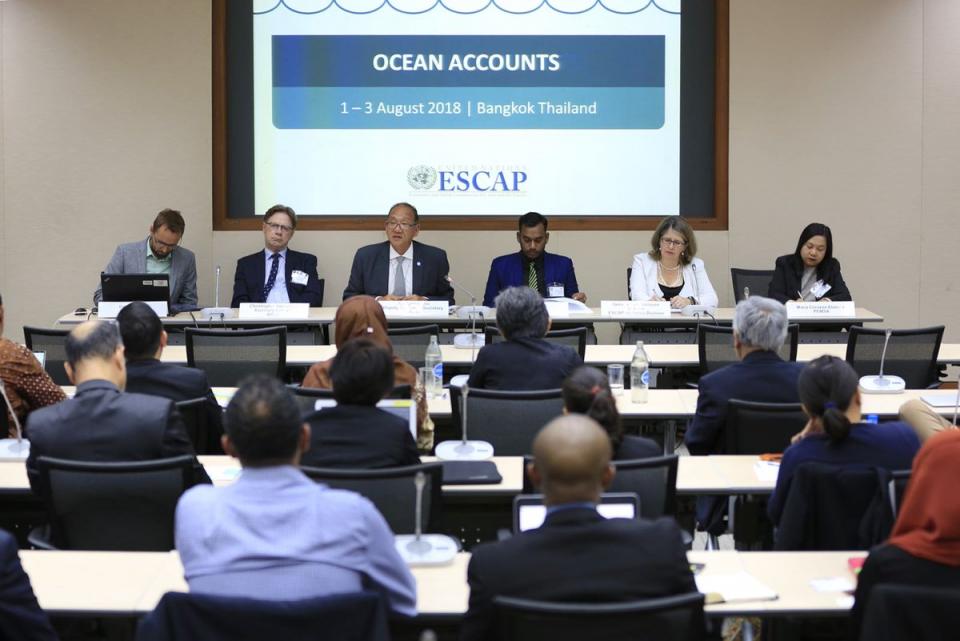Ocean Accounts Partnership Holds First Meeting

One of the top challenges for monitoring progress toward Sustainable Development Goal 14, “Conserve and sustainably use the oceans, seas and marine resources for sustainable development,” is the fragmentation of information across scientific domains, policy frameworks and institutions. The integrated approach of the System of Environmental Economic Accounting (SEEA) offers a path forward. ESCAP and UN Environment are leading a global effort to develop statistical guidance based on the SEEA. Major features of this effort include a draft technical note expected for release in Fall 2018 and the initiation of pilot ocean accounts in Indonesia, Thailand and Vanuatu.
In response to requests from member States and international experts, ESCAP convened the first Asia and the Pacific Expert Workshop on Ocean Accounts (August 1-3, 2018). This was the inaugural activity for the Ocean Accounts Partnership, a collective effort to strengthen evidence and governance to achieve SDG14.
The first objective of this workshop was to facilitate a community of practice around standards for ocean statistics including spatial information. In advance, a conceptual framework integrating aspects of the SNA, SEEA-CF and SEEA-EEA was proposed. This was further refined through online collaborations and discussions during the workshop.
The second objective was to provide inputs to the revision of the SEEA by adapting and extending the SEEA to better apply to the ocean. This was in response to the UN Statistical Commission’s (UNSC 49th Session) agreement for ESCAP and UN Environment to lead the development of recommendations on the ocean.
Participants included 85 experts from national governments, research institutes, and international and regional organizations. The workshop consisted of four main components:
- Keynote lectures on ocean statistics, science and governance,
- Summaries of issue briefs with plenary and focus group discussions
- Regional and national (Indonesia and Vanuatu) assessments of the status of ocean-related priorities, policies, institutions and data availability
- Side events on specific research areas
Workshop materials including keynote videos, participant list and a summary of the workshop are available online[1]. A draft technical note is expected to be released in October 2018.
The next step for the Ocean Accounts Partnership is to conduct pilot studies in selected countries based on the technical note. Indonesia, Thailand and Vanuatu have agreed to host pilots to develop new, priority data products and analyses. In keeping with the dual objective of the Ocean Accounts Partnership to strengthen ocean governance and statistics, the pilots will include assessing policies and institutions to address gaps and “bottlenecks” to implementing SDG14. This is an evolution in the development of the Diagnostic Tool, which is currently used to develop work plans to strengthen statistics for existing policy priorities. By linking to governance, this approach will encourage synergies between policy and statistical development.
